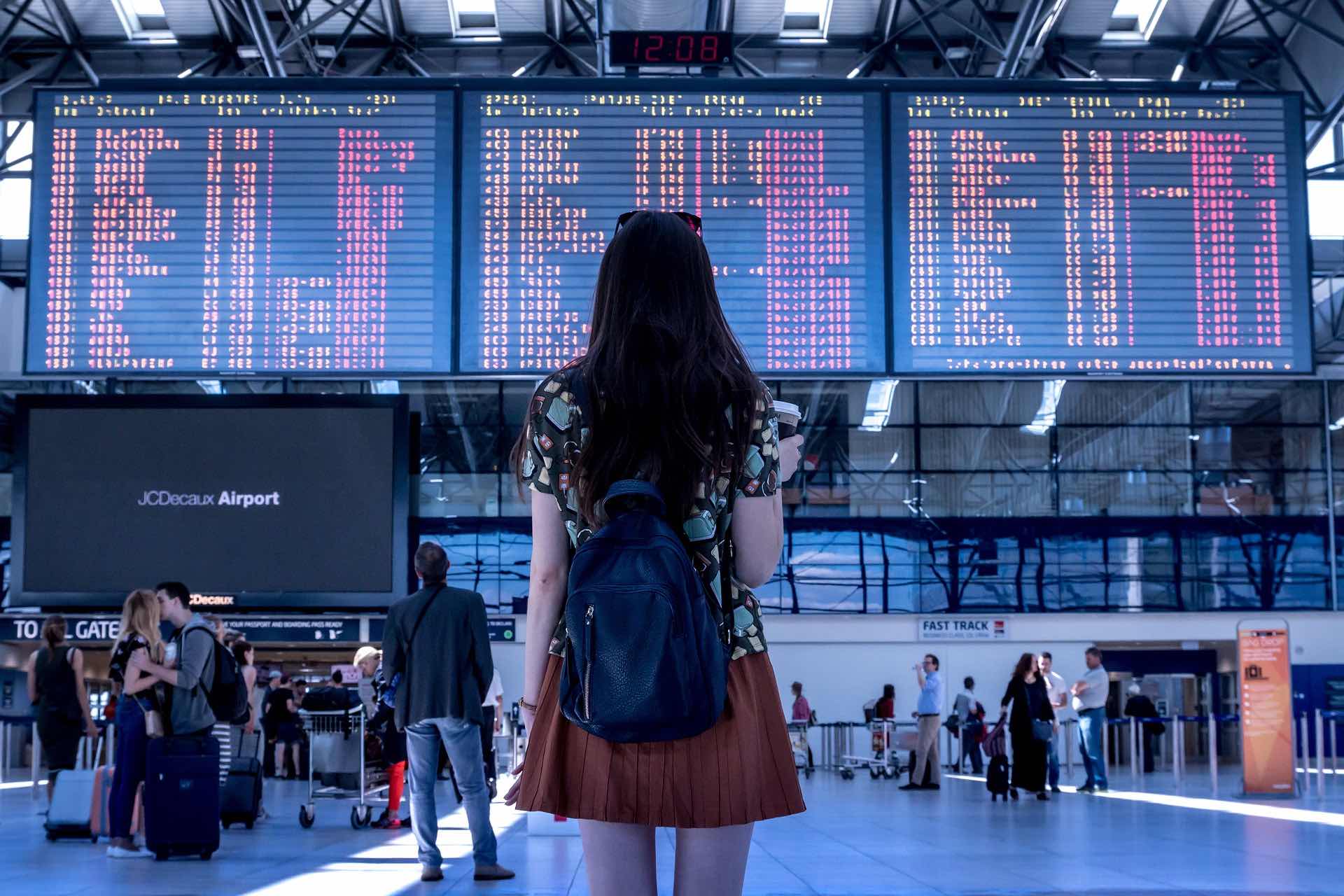
Thinking about United’s Super Bowl ad emphasizing the elimination of change fees on most tickets made me realize how the lack of change fees has fundamentally changed the way I book air travel.
No Change Fees Have Changed The Way I Book Air Travel And Saved Me A Lot Of Stress
Southwest Airlines, of course, never had change fees, but I am not a Southwest flyer. I primarily fly United Airlines, but also fly on Alaska Airlines, American Airlines, Delta Air Lines, and JetBlue Airways.
Over the years, change fees crept up from $25 to as much as $200 one-way on domestic trips and $400 on international trips. Those punitive fees, which in no way expressed actual cost for the airline, forced me to carefully plan travel and stick to my plans. Booking a $300 one-way ticket and then paying $200 to change the date made no sense. I only booked travel when my plans truly firmed up.
But then in 2020 United Airlines decided to eliminate change fees “permanently” on domestic flights. Others followed and Delta went even further by eliminating them on international flights originating in the USA, forcing United to match. While “basic economy” tickets and also some tickets originating outside the USA still carry change fees, it is fairly easy to avoid those tickets by booking into a slightly more expensive fare class. I find the savings of booking a basic economy ticket are never worth giving up the flexibility (and the ability to upgrade).
United shares that since it eliminated change fees, 10 million customers have changed their flights without paying:
- 3.6 million people switched the time of day of their flight
- 1.8 million people extended their trip
- 1.5 million people chose to fly to or from a different airport
- 300,000 people changed from a domestic flight to an international one, or vice-versa
Same-day changes were part of the equation before the 2020 policy change, as a United Premier (frequent) flyer, I might not have changed travel dates, but within a 24-hour period around my flight, I could confirm onto an earlier or later flight, subject to availability. That was helpful and still is. Now all passengers can standby for an earlier flight at no cost (it used to be $75).
What has changed for me is my willingness to book immediately if I am even considering a trip. I spend a lot of money on United each year and now if I am, for example, considering a flight to Washington, DC I’ll just book it immediately, knowing that if I cancel I will have the full credit to apply toward future travel.
I do change plans and I appreciate that the United app or united.com (and the same is true for other carriers) makes it easy to rebook. It actually drives loyalty and also saves me time, because my planning no longer needs to be as scrupulous to avoid unnecessary change fees.
So I save time and airlines like United gain more revenue because I am much less reluctant to book. It’s a win-win formula: it is why Southwest has always been this way. For any change fee revenue airlines may have given up, I feel confident they have gained it back (and more) on prospective bookings that would have been too risky in the past.
CONCLUSION
A lack of change fees truly has changed the way I book air travel and led to a whole lot more bookings, since I know that if my plans change I will not lose money through punitive change fees. This approach also saves me a lot of time and I suspect it saves airlines a lot of time too in terms of customers trying to wiggle out of these fees.
Has the lack of change fees fundamentally changed the way you book air travel?




This has been a huge benefit. The previous change fees were outrageous. Working for a small company, we are now able to book flights for meetings or events we plan to attend during the year way in advance when fares are much cheaper and later on make changes and pay difference in fares if needed. That has allowed us to save so much money. Unfortunately that has not been the case in Europe. Just planning my family summer trip this year and you have 4 tiers of prices in which only the most expensive allows you to cancel without any fees.
Free same day standby has had a similar effect on me as well. I find myself gambling a little and booking a cheaper later flight intentionally and standby-ing onto the earlier flight I really wanted. Worked for me all but once! and save my self at least $50-100 each time
Airlines probably make up some of those fees with breakage — I’m always paranoid about forgetting to reuse credits. I’m sure lotsa people just forget or don’t get a chance to reuse them.
It hasn’t changed my habits significantly.
If I have to cancel/change a flight for one reason or another, I don’t always end up flying that same airline for the alternate flight, so I usually end up with credits that I don’t want. Sometimes I don’t fly an airline for years at a time so I have to force myself to spend those credits or lose them due to expiration.
This reminds me, I have a Delta credit I still need to spend because I changed a HND-IAD award flight to KIX-SFO so my DCA-BOS Delta flight was turned into credit while I booked a Jetblue flight from SFO-BOS.
Since no change fees started, I don’t need to be overly cautious when I book and therefore book more often and have given the airlines more money than I would have if I had to pay $200 change fees like in the pre-Covid days.
Like “resort fees”, change fees are/were nothing but a rip off – this is one big reason why I chose to fly Southwest and continue to fly them for the last 35 years.
Definitely changed a lot of my award travel booking. Right now I have a return from the USA in biz for two in May (86.5 AA miles North Carolina to Sydney). I booked two cheap American flights in economy there as a placeholder (40k). I’ll keep checking up to the week of flying to see if a day works in biz with decent connections.
Are United awards to the USA still cancellable without a fee?
“Those punitive fees, which in no way expressed actual cost for the airline”
I love no change fees, though I’d disagree. The airline gets a lot less visibility for revenue forecasting if flexible tickets are offered in bulk. For example, if 100 people change their flight on a certain day, that plane would go out empty, and if 1000 people suddenly decide to cancel their ticket in a certain period of time, it may affect something the airline’s already considered investing in, such as advertising or offering a new cabin product.
We probably should have more flexibility than we currently do on non-U.S. flights, but I’d see the argument for some kind of change fee. As far as I know U.S. airlines have responded to this forecasting with Basic Economy and higher “classic economy” tickets.
With change fees, the sword cuts both ways though… while we can think of hypothetical ways that a change could result in a financial loss for an airline, and I’m sure it sometimes does, I can’t be alone in having previously paid $150 or more in change fees in the past in order to change from a fully booked highly desirable and high priced flight to a far less desirable, lower priced flight with plenty of availability. Effectively paying the airline a fee and doing them a favor at the same time.
The term “permanently” is the key here. But, as the industry has a history of being cyclical in many ways, let’s hope that change fees are, in fact, permanently gone, and they don’t come back (whether in their old form or a new one).
Your sponsored content today is “Visit Florida”. I did click to read the whole article.
If UA has more flight frequency to major Florida cities from ORD, DEN and SFO it would be great.
There is still a “fee” but it is of course because there is a different fare when you change usually higher when you need to change the day or time of the flights!!
No change fees has been great for me! For the airlines, I agree it’s likely been a net win as well. For me at least, it is a reason to buy up to regular economy.
It’s also led me to bias booking on an airline that has frequent service to where I would go. I am based in SFO, and I’ll favor booking on United or Alaska since i know it’ll be easy to use the credit too if I need to cancel. For the airline, it gives them an opportunity to re-sell your ticket (likely for a higher fare now), and since you have credit locked in now, you’ll book another ticket with them.
Re: SDC – this has long been my favorite benefit of United status. I do think they’ve tightened this up though. Pre-COVID, I could fairly reliably expect that almost all fare classes would open up at the 24 hr mark. Nowadays I find it increasingly rare on cheap economy tickets, at least not until just a few hours before departure.
Nowadays though, I always have to remind myself that if I ticket through a foreign carrier, I’ll have to pay change fees. It’s interesting to consider how much longer I’ll delay booking (until plans are formed up) in that situation.
Meanwhile Lufthansa Business Saver recently went from charging €90 (about 40% of the price of a regular one-way portion of a return intra-europe business fare) for changes to disallowing them altogether, so I have just booked an Economy Classic fare and saved £100 that I had been happy to give them.
I fly united nearly all the time so having credits isn’t an issue because I know I will use them. I will constantly receive my bookings and at times have saved a few hundred dollars when prices dropped or a better time opened up with a cheaper fare. After you book. go to Google flights and start tracking your itinerary. when the price drops, go and change
This has made all the difference for me choosing to fly over driving/Amtrak. My plans to visit frequently-ill elders or flaky fellow millennials are rarely firm enough for a non-refundable commitment.
This is only true for frequent flyers like us who are loyal to a specific airline (Knowing we will fly UA allot). The average flyer who always just chooses which ever airline is cheapest won’t want to tie up their money in an airline they may not fly again within a year.
Also, I keep wondering if UA will try to change were are doing “speculative booking”
Some airlines still have Bad and expensive change fees as well as seat fees, last minute airfare fees, such as Air Canada in which case I book through United if I want to fly AC.
Don’t worry. The airlines are not stupid. They probably add an extra cost to each airfare purchased to make up and recoup the “no change fee.”